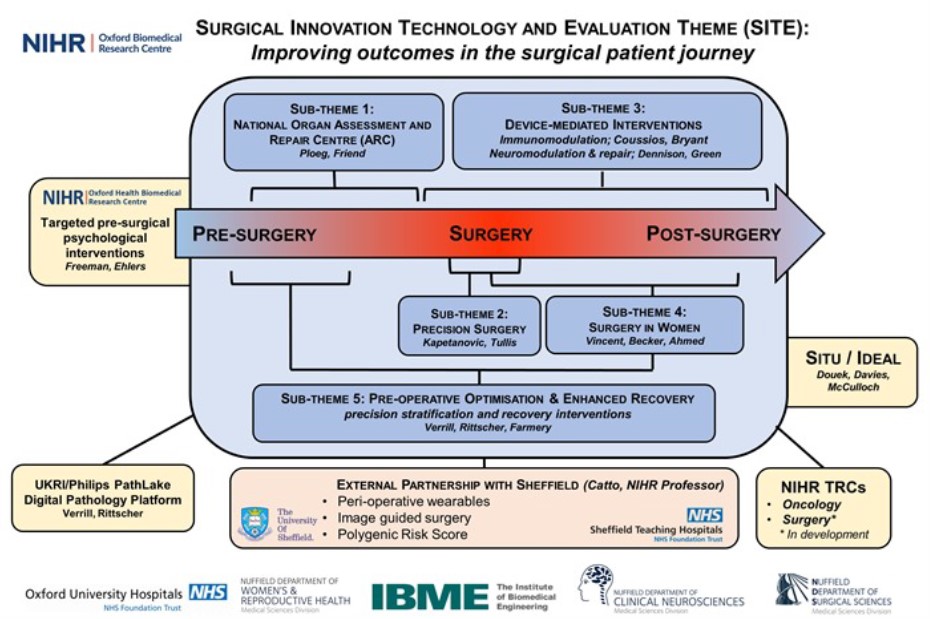Our theme aims to improve the experience of patients undergoing surgery by applying a more holistic approach to their surgical pathway, taking in not just the operation itself but the period before and after.
At all stages of the surgical journey, and in consultation with various patient groups, we are trialling new technological interventions to ultimately achieve the best possible outcome for the patient. This encompasses psychological interventions; physical and mental ‘prehabilitation’; precision surgery to minimise side-effects; as well as enhancing post-operative recovery, including improved ventilatory technologies.
Our novel approach also means that we are looking at surgical outcomes that specifically affect women, taking into consideration the possible differences we need to apply to gender, whether in treating conditions that uniquely affect women or where there are disparities in the outcomes of men and women. As well as having a women-specific sub-theme, we are ensuring that these considerations run through the whole theme.

The University of Oxford’s Nuffield Department of Surgical Sciences, which hosts the theme, is one of the UK’s leading academic surgical departments with a large research portfolio and strong links with other departments and NHS colleagues.
Our work is further enriched by a burgeoning partnership with the University of Sheffield, with its own network of specialist researchers. This collaboration gives us the opportunity to identify and address geographical variations in surgical co-morbidities.
Our sub-themes are:
Sub-theme 1 – Organ assessment and repair
Using new technology, we are working to increase the number of suitable organs available for transplantation. We are also working to establish an organ assessment and repair centre that will play a key role in national transplant services. Read more
Sub-theme 2 – Precision surgery
We are developing more precise surgical methods to reduce collateral injury and speed up recovery. This will include: image/molecular-guided surgical technologies; using robotic technology; and isolating organs for cancer therapies. Read more
Sub-theme 3 – Device-mediated interventions in surgery
There are two main strands in this sub-theme: immunomodulation – using focused ultrasound on a tumour to disrupt its cells and alter the immune response; and neuromodulation and repair, which involves deep-brain stimulation technology to ‘repair’ neurological disorders. Read more
Sub-theme 4 – Surgery in Women
We are aiming to improve the detection and treatment of conditions that uniquely affect women, such as endometriosis or ovarian cancer, and improve sex-specific outcomes for patients throughout the programme. Read more
Sub-theme 5 – Preoperative optimisation and enhanced recovery
We will use a combination of technologies – including our expertise in digital pathology combined with big data analysis – to enhance surgical decision-making in common diseases, such as cancer and inflammatory bowel disease. We are also testing new technologies to enhance recovery after major surgery. Read more